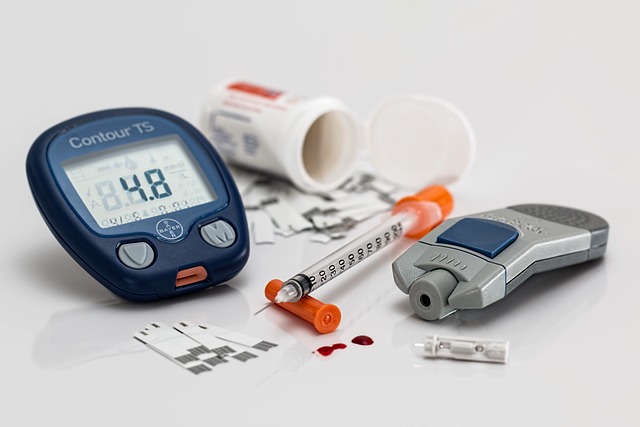Muscle development, also known as hypertrophy, is a complex biological process influenced by various factors, including exercise, nutrition, genetics, and—most critically—hormones. These chemical messengers play a pivotal role in regulating muscle growth, repair, and overall physical performance. Understanding how hormones function in this context not only provides insight into optimizing workouts but also highlights the importance of maintaining hormonal balance for long-term health and fitness goals.
What Are Hormones?
Hormones are signaling molecules produced by the endocrine system that regulate numerous physiological processes, including metabolism, growth, reproduction, and stress response. In the context of muscle development, certain hormones act as key players in promoting protein synthesis (muscle building), reducing protein breakdown, and enhancing recovery after exercise.
Key Hormones Involved in Muscle Development
1. Testosterone
Testosterone is perhaps the most well-known hormone associated with muscle growth. It plays a central role in:
- Stimulating protein synthesis.
- Increasing muscle mass and strength.
- Enhancing satellite cell activity, which aids in muscle repair and regeneration.
While testosterone levels are naturally higher in men, women also produce it in smaller amounts, and it contributes significantly to their muscle-building capacity as well. Factors like age, sleep quality, diet, and exercise intensity can influence testosterone production.
2. Growth Hormone (GH)
Growth hormone, secreted by the pituitary gland, is essential for tissue repair, fat metabolism, and muscle growth. Its effects include:
- Promoting the release of insulin-like growth factor 1 (IGF-1), which directly stimulates muscle cell proliferation and differentiation.
- Supporting recovery by accelerating tissue repair and reducing inflammation.
High-intensity exercises such as weightlifting and sprinting are particularly effective at boosting GH secretion.
3. Insulin-Like Growth Factor 1 (IGF-1)
IGF-1 works closely with growth hormone to mediate many of its anabolic effects. This hormone:
- Encourages muscle hypertrophy by activating pathways involved in protein synthesis.
- Plays a role in bone density and connective tissue health, which supports overall musculoskeletal function.
Adequate nutrition, especially protein intake, is crucial for maintaining optimal IGF-1 levels.
4. Insulin
Insulin, primarily known for its role in blood sugar regulation, also influences muscle development. It:
- Facilitates the uptake of glucose and amino acids into muscle cells, providing energy and raw materials for growth.
- Reduces muscle protein breakdown, preserving lean mass during periods of intense training.
However, chronically elevated insulin levels due to poor dietary habits can lead to insulin resistance, undermining its beneficial effects on muscle.
5. Cortisol
Often referred to as the “stress hormone,” cortisol has a dual role in muscle development. While short bursts of cortisol release help mobilize energy stores during exercise, prolonged elevation due to chronic stress or overtraining can:
- Increase protein breakdown, leading to muscle loss.
- Impair recovery and weaken immune function.
Balancing cortisol through proper rest, stress management, and adequate caloric intake is vital for maximizing gains.
6. Estrogen
Although estrogen is typically associated with female physiology, it also plays a role in muscle health for both genders. In women, estrogen:
- Supports muscle recovery and reduces inflammation.
- Protects against excessive muscle damage during exercise.
In men, moderate levels of estrogen contribute to joint and tendon health, indirectly supporting muscle function.
How Exercise Influences Hormonal Activity
Different types of exercise elicit varying hormonal responses, making training strategies critical for optimizing muscle development:
- Resistance Training:
Lifting weights triggers acute increases in testosterone, growth hormone, and IGF-1, creating an ideal environment for muscle growth. Compound movements like squats, deadlifts, and bench presses are particularly effective at stimulating these hormonal surges. - High-Intensity Interval Training (HIIT):
Short bursts of intense effort followed by rest periods boost GH and catecholamine (adrenaline and noradrenaline) levels, enhancing fat oxidation and muscle preservation. - Endurance Training:
Prolonged aerobic activities may increase cortisol levels if not balanced with sufficient recovery. However, moderate endurance work can still support cardiovascular health and improve nutrient delivery to muscles. - Rest and Recovery:
Adequate sleep and downtime allow hormones like testosterone and GH to reach peak levels, facilitating repair and adaptation. Overtraining, on the other hand, disrupts hormonal balance and hinders progress.
Nutrition’s Impact on Hormonal Balance
Diet plays a foundational role in supporting hormonal health and, consequently, muscle development. Key nutritional considerations include:
- Protein Intake:
Protein provides the building blocks (amino acids) necessary for muscle repair and growth. Consuming high-quality proteins like lean meats, eggs, dairy, and plant-based options ensures adequate substrate for hormone-mediated processes. - Healthy Fats:
Dietary fats are precursors to steroid hormones, including testosterone. Sources like avocados, nuts, seeds, and fatty fish should be included in a balanced diet. - Carbohydrates:
Carbs replenish glycogen stores and support insulin regulation, ensuring sustained energy and efficient nutrient transport to muscles. - Micronutrients:
Vitamins and minerals such as zinc, magnesium, vitamin D, and B vitamins are integral to hormone production and function. Deficiencies can impair muscle development and recovery.
Age and Hormonal Changes
As we age, natural declines in hormone levels can affect muscle development:
- Testosterone and GH production decrease, slowing muscle growth and increasing susceptibility to sarcopenia (age-related muscle loss).
- Maintaining an active lifestyle, prioritizing strength training, and consuming a nutrient-dense diet can mitigate some of these effects.
For older adults, consulting healthcare providers about hormone replacement therapy (HRT) or supplements under medical supervision may be beneficial in certain cases.
Practical Tips for Optimizing Hormonal Health
To harness the power of hormones for muscle development, consider the following strategies:
- Train Smart: Incorporate a mix of resistance, HIIT, and moderate cardio while avoiding overtraining.
- Eat Balanced Meals: Focus on whole, minimally processed foods rich in protein, healthy fats, and complex carbs.
- Prioritize Sleep: Aim for 7–9 hours of quality sleep per night to optimize recovery and hormone secretion.
- Manage Stress: Practice mindfulness techniques, meditation, or yoga to keep cortisol levels in check.
- Monitor Progress: Track your workouts, nutrition, and body composition to identify areas for improvement.
